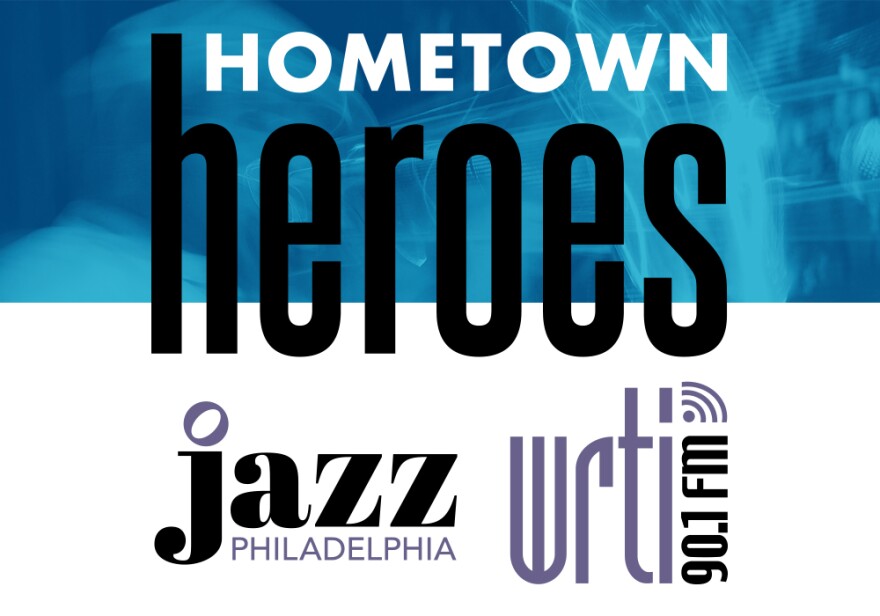In Puerto Rico, where trombonist/bandleader Papo Vázquez spent a significant portion of his childhood, there’s a Christmas tradition called the Parranda. A combination of Christmas caroling and Carnival parade, the festivities feature traditional songs and instruments along with spontaneous visits to friends, neighbors, or family.
In Vazquez’s family, the tradition carried over to his native Philadelphia, with a few small drawbacks. “I remember doing it in the snow,” Vazquez recalled, the chill still evident in his voice. “It was like a Christmas assault.”
The conjunction of heritage and adaptation that characterized Vazquez’s upbringing still marks his music to this day. As the leader of the Mighty Pirate Troubadours, Vazquez takes a swashbuckling approach to the melding of Puerto Rican and Latin rhythms and the boisterous swing and rollicking improvisation of modern jazz. The name was suggested by a former bandmate as a more appropriate replacement for his narrowly-focused first option, Papo Vázquez Bomba Jazz.
Vazquez claims to have liked the name more than he understood it at first, but soon came to embrace its meaning. “I have a definition for it now,” he explained. “A Pirate Troubadour is somebody who steals your musical allegiance.”

Vazquez has been doing just that for more than 45 years, garnering a Grammy nomination and an NEA Latino Masters Award in the process. The music of the Mighty Pirate Troubadours is a vigorous, window-rattling brand of Latin jazz, equally inspired by the explosive salsa bands that he experienced in his formative years and the progressive jazz of idols like John Coltrane and J.J. Johnson. He also credits the city of his birth.
“The city of Philadelphia has a lot of history,” he declared. “Once you’re born or raised there, there’s something that’s ingrained in your DNA — William Penn and Benjamin Franklin, the jazz and the Latino community that I grew up in.”
Vazquez was born near 21st and Green Streets in 1958, but his family moved back to Puerto Rico when he was five years old, where he grew up for the next five or six years. Back in Philadelphia by his teens, he got to hear many of the day’s great Latin and salsa bands in local clubs, and soon got his start playing those same stages.
“That was the era of bands like Willie Colón and Ray Barretto, Larry Harlow, and Bobby Valentín,” he recalled. “Young Papo was 14, 15 years old, hearing these bands at clubs like the Spanish American and the Exodus. The famous bands from New York would alternate with the Philly bands, and that’s how I started my career as a musician.”
Vazquez left Philly to more fully immerse himself in the New York scene, though he’s never forgotten his roots. As recently as his 2020 release Chapter 10: Breaking Cover, recorded at the first easing of pandemic-era restrictions, he recorded a piece called “Fairmount Park” in tribute to his memories of home.
“That theme came to me because a Will Smith song came on the radio and I really liked the groove,” he said. “I wanted to write something like that, but utilizing the rhythmical concept that we use with the Mighty Pirates. It sounds like you’re hanging out in the park and the guys are playing their drums. It’s a nice, happy kind of vibe.”
After moving to New York City, Vazquez became a founding member of trumpeter Jerry González’s pioneering Fort Apache Band and percussionist Manny Oquendo’s influential Conjunto Libre. Returning to Puerto Rico, he spent several years as a member of the popular Latin fusion band Batacumbele. Throughout these years he performed and recorded with a who’s who of his varied styles of music, including Barretto, Colón, Harlow, The Fania All-Stars, Eddie Palmieri, Hector La Voe, Tito Puente’s Latin Jazz Ensemble, and Dizzy Gillespie’s United Nations Orchestra.
In 1993, Vazquez released his debut as a leader, Breakout. By the end of the decade his concept had evolved to embrace the roguish, free-wheeling attitude that inspired the Might Pirate Troubadours name. “As pirates, we can navigate and go anywhere we want,” he concluded. “Roam the high seas and play whatever music we want to play. And we have fun with it.”

